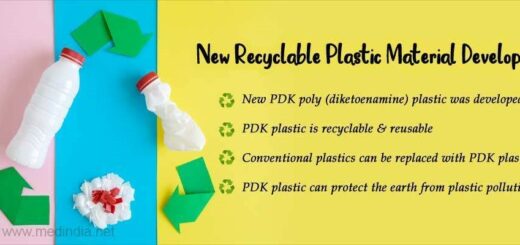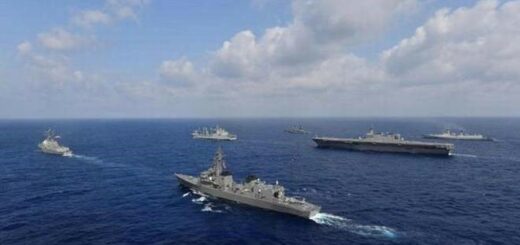National Current Affairs – UPSC/IAS Exams- 3rd September 2019
Automatic Exchange of Information (AEOI)
Topic: Economy/International Relations
In News: Banking details of Indians with accounts in Switzerland will be available to tax authorities as the automatic exchange of information regime kicks off between the two countries.
More on the Topic:
- On November 2016, Switzerland and India signed a joint declaration on the introduction of the automatic exchange of information (AEOI) in tax matters on a reciprocal basis.
- Both countries intend to start collecting data in accordance with the global AEOI standard in 2018 and to exchange it from 2019 onwards.
- The step is likely to shed more light on the wealth Indians have stashed away in Swiss bank accounts, for so long governed by strict local rules of secrecy.
- The move is a significant step in the government’s fight against black money and the era of “Swiss bank secrecy” will finally be over.
- India will receive information of the calendar year 2018 in respect of all financial accounts held by Indian residents in Switzerland.
- The information will include accounts that were closed during 2018.
About AEOI?
- Automatic Exchange of Information (AEOI) is systematic and periodic transmission of “bulk” taxpayer information by the source country to the residence country, which is possible under most of the Double Taxation Avoidance Agreements (DTAAs) and Multilateral Convention on Mutual Administrative Assistance in Tax Matters (MAC).
- It aims to reduce global tax evasion. It is to be carried out under Common Reporting Standard (CRS) of OECD.
- AEOI is the exchange of information between countries without having to request it.
Significance of AEOI:
- Enables the discovery of formerly undetected tax evasion.
- Enable governments to recover tax revenue lost to non-compliant taxpayers, and will further strengthen international efforts to increase transparency, cooperation, and accountability among financial institutions and tax administrations.
- Generate secondary benefits by increasing voluntary disclosures of concealed assets and by encouraging taxpayers to report all relevant information.
Source: The Hindu
‘Build for Digital India’ programme
Topic: Science and Technology
In News: Tech giant Google has signed a statement of intent with the Ministry of Electronics and IT (MeitY) for rolling out ‘Build for Digital India’ programme.
More on the Topic:
- The programme will offer a platform to engineering students to develop market-ready, technology-based solutions that address key social problems.
- As part of the program, engineering students across the country will be invited to present their ideas and solutions in areas like healthcare, agriculture, education, smart cities and infrastructure, women safety, smart mobility and transportation, environment, accessibility and disability and digital literacy.
- Applicants will take part in online and offline learning opportunities on key technologies such as Machine Learning (ML), Cloud and Android that will be offered through Google’s Developer Student Club network and other Google Developer networks.
- Google will also offer mentorship sessions in product design, strategy and technology to the most promising products and prototypes.
- This initiative will not only motivate the college students across India to innovate but will also produce some good technology solutions for some major social challenges of India.
Source: The Hindu
‘Samudrayaan’ Project
Topic: Science and Technology
In News: India’s ambition to send men to the deep sea in a submersible vehicle is likely to be a reality in 2021-22 with the ‘Samudrayaan’ project.
More on the Topic:
- The project proposes to send a submersible vehicle with three persons to a depth of about 6000 metres to carry out deep underwater studies. Submarines go only about 200 metres.
- The indigenously developed vehicle is capable of crawling on the sea bed at a depth of six kilometre for 72 hours.
- The ‘Samudrayaan’ is a part of the Ministry of Earth Sciences’ pilot project for deep ocean mining for rare minerals. The project has been undertaken by the National Institute of Ocean Technology (NIOT).
- The success of the ‘Samudrayaan’ will help India to join the league of developed nations in exploration of minerals from oceans.
- India has been allocated a site of 75,000 sq km in the Central Indian Ocean Basin by the International Sea Bed Authority for exploration of polymetallic nodules from seabed.
- Besides manganese and iron, they contain nickel, copper, cobalt, lead, molybdenum, cadmium, vanadium, titanium, of which nickel, cobalt and copper are considered to be of economic and strategic importance.
- It is envisaged that 10% of recovery of that large reserve can meet the energy requirement of India for the next 100 years. It has been estimated that 380 million metric tonnes of polymetallic nodules are available at the bottom of the seas in the Central Indian Ocean.
Source: The Hindu
Uranium
Topic: Geography- Natural Resources
In News: The Andhra Pradesh government has ordered an inquiry into a number of complaints about groundwater pollution caused by the uranium mining and processing project of UCIL in Kadapa district of Andhra Pradesh.
More on the Topic:
- UCIL was incorporated in 1967 as a Public Sector Enterprise under the Department of Atomic Energy, for uranium mining and uranium processing.
- Jaduguda in Singhbhum Thrust Belt (in the state of Jharkhand) is the first uranium deposit to be discovered in India in 1951.
- Only 3% of power in India is provided by Uranium.
- Largest viable deposits of Uranium are found in Australia, Kazakhstan, and Canada.
Source: The Hindu
Interpol-Red Notice
Topic: International Institutions
In News: Home Minister Amit Shah has conveyed to Interpol Secretary-General Jurgen Stock that India would like the international police agency to expedite its process of publishing Red Notices (RNs).
More on the Topic:
- Criminals or suspects often flee to other countries to evade facing justice. An RN alerts police forces across the world about fugitives who are wanted internationally.
- RNs contain information that helps identify wanted persons, such as their names, dates of birth, nationality, and physical attributes such as the colour of their hair and eyes, as well as pictures and biometric data such as fingerprints, if they are available. RNs also mention the crime(s) they are wanted for.
- An RN is published by Interpol at the request of a member country. The fugitives may be wanted for prosecution or to serve a sentence. The country issuing the request need not be the home country of the fugitive; Interpol acts on the request of a country where the alleged crime has been committed.
- An RN is an international wanted persons’ notice; it is not an international arrest warrant. Which means that the Interpol cannot compel the law enforcement authorities in any country to arrest the subject of an RN.
- It is up to individual member countries to decide what legal value to give to an RN, and the authority of their national law enforcement officers to make arrests.
- RNs are issued to simultaneously alert police in all member countries about internationally wanted fugitives. An RN can help bring a fugitive to justice, sometimes many years after the crime was committed.
Source: The Hindu
“Reducing Food Loss and Waste”-Report
Topic: Reports and Indices
In News: According to the report “Reducing Food Loss and Waste” by the World Resources Institute (WRI), uneaten food is impacting the economy and the environment negatively.
More on the Topic:
- Food Loss and Wastage Definition: Food loss refers to food that spills, spoils, incurs an abnormal reduction in quality such as bruising or wilting, or otherwise gets lost before it reaches the consumer. It is the unintended result of an agricultural process or technical limitation in storage, infrastructure, packaging, or marketing.
- Food waste refers to food that is of good quality and fit for human consumption but that does not get consumed because it is discarded—either before or after it spoils. It is the result of negligence or a conscious decision to throw food away.
- Uneaten Food- Impacts: Nearly one-third of the food that is produced each year goes uneaten, costing the global economy over $940 billion. Uneaten food is responsible for emitting about 8% of planet-warming greenhouse gases into the atmosphere.
- Where did Food Loss and Wastage happens: Most of the food loss happens “near the farm” predominantly in lower-income countries. Most of the food waste happens “near the plate” predominantly in higher-income countries.
- Share of Food Group Lost or Wasted: Roots and tubers are the food group that face the maximum wastage, at over 62% in the year 2007. Fruits and vegetables follow, with over 41% in the year 2007.By weight, fruits and vegetables make up the largest share of total annual food loss and waste.
Way Forward:
- Developing national strategies for food loss and waste reduction.
- Creating national public-private partnerships to deal with food losses and wastage.
- Tackling food loss and waste across the entire supply chain.
- Shifting consumer social norms so that wasting food is seen as unacceptable.
| WRI is a global research organization that spans more than 60 countries, with international offices in Brazil, China, India, Indonesia, Mexico and the United States.It was established in 1982. Headquartered in Washington, US. |
Model Mains Question: What is Food wastage? What are the causes of food wastage in India? Comment on the significance of Alleviating food wastage.
Source: Indian Express
South-Asian Speaker’s Summit
Topic: Bilateral/Regional Groupings
In News: The 4th South-Asian Speaker’s Summit on achieving Sustainable Development Goals (SDGs) concluded in Male, Maldives.
More on the Topic:
- The Summit is intended for Speakers of the Parliaments of Afghanistan, Bangladesh, Bhutan, India, Myanmar, Nepal, Pakistan, Sri Lanka, and the Maldives.
- Parliaments play a key role in ensuring a sustainable future for current and future generations- given their legislative oversight, & representative and budgetary functions.
- This forum allows Speakers of various Parliaments to continue to develop dialogue and parliamentary cooperation on achieving the SDGs.
- International Food Policy Research Institute (IFPRI) also participated in the summit in order to achieve SDGs 2 & 3 targets: Nutrition and food security as drivers of maternal, child and adolescent health in the Asia-Pacific region.
Kashmir Issue-Summit’s Stand:
- India had a heated discussion during the summit over the Kashmir issue with Pakistan, where India rejected the politicization of the forum by raising internal issues of a particular country.
- The joint statement released by the leaders in Male unanimously supported India’s bid regarding Kashmir, & claimed it to be an internal matter of India, overlooking Pakistan’s claims.
- In the summit, the Indian delegation was led by the Speaker of Lok Sabha.
Source: Indian Express














